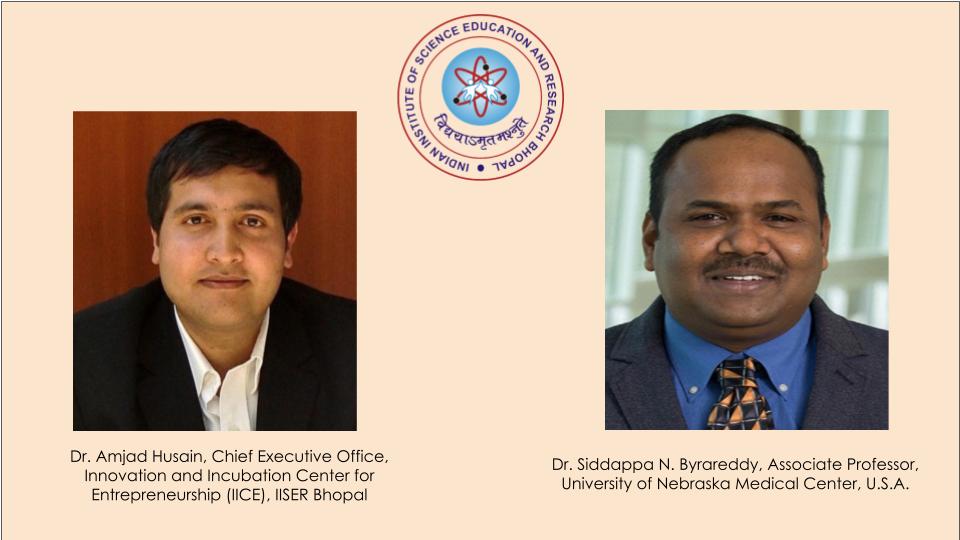Indian Institute of Science Education and Research (IISER) Bhopal and University of Nebraska Medical Centre, Nebraska, (UNMC), USA Researchers have identified ‘Rapamycin’ as a drug that can be repurposed to treat COVID-19.
Currently being used for patients having undergone organ transplantation and certain cancer patients, Rapamycin and its analogues are commonly available in India and abroad, IISER said in a release.
Research was conducted by Dr Amjad Husain, Principal Scientist, and Chief Executive Officer, Innovation and Incubation Center for Entrepreneurship (IICE), IISER Bhopal, and Dr Siddappa N Byrareddy, Associate Professor, Pharmacology, and Vice-Chair, Research at UNMC, USA.
In a peer-reviewed paper published recently in the reputed International Elsevier journal, Chemico Biological Interactions, the researchers showed that the biochemical working of this drug molecule points to its promise in the treatment of COVID-19.
The paper elaborates on the rationale of repurposing this drug for treating COVID-19 patients. Since the repurposed drug has gone through the clinical development process for the treatment of other diseases and has already been tested for toxicity, many steps in preclinical and early clinical development can be avoided and the the drug can be directly tested on COVID-19 subjects in phase-II trials.
Dr Amjad Husain, Principal Scientist, and Chief Executive Officer, Innovation and Incubation Center for Entrepreneurship (IICE), IISER Bhopal, said, “The development of a new drug is time-consuming and cannot be relied on as a solution in combating the immediate pandemic.”
“Drug repurposing is an attractive solution, wherein, an existing drug used to treat another related or unrelated ailment may be tested against COVID-19,” he added.
An example of such a repurposed drug is Remdesivir. It was originally developed to treat Hepatitis C infection. The drug has shown limited success in treating COVID-19 patients. Identification of more such drugs is important given the scale of the pandemic. Rapamycin works differently from Remdesivir. While the latter targets the virus itself, this Rapamycin targets the host proteins and may resist the infection.
“Using repurposed drug such as Rapamycin that targets mTOR, a central molecule affecting multiple signalling pathways, may yield a significant clinical benefit for the treatment of COVID-19,” added Dr Husain.
One of the main challenges in developing antiviral drugs for COVID-19 has been the extensive mutations that the virus undergoes, which makes one antiviral drug ineffective against another mutant, and the development of drug-resistant strains.
Treatment with drugs such as Rapamycin will not face that problem because it acts on host proteins and not on the virus. Rapamycin inhibits protein synthesis and can also arrest virus replication, irrespective of the type of mutant.
At a biochemical level, apart from inhibiting protein synthesis, Rapamycin has been known to inhibit pro-inflammatory cytokines. It is known that severe COVID-19 infection results in an increase in inflammatory cytokines in a process known as the ‘cytokine storm’. The inhibitory action of Rapamycin towards cytokines also makes it a promising treatment for COVID-19.
In addition, Rapamycin is known to reduce obesity through various pathways and this can help in mitigating the severity of COVID-19 effects in obese people.
Furthermore, Rapamycin is known to induce autophagy, a cellular recycling process that helps in eliminating the damaged proteins and delaying ageing. Given the connection between age and COVID mortality, i.e. more fatalities with older people, the anti-ageing properties of Rapamycin can have protective effects against COVID-10-induced morbidities.
There is a worldwide scramble to find drugs for the ongoing COVID-19 pandemic. While the commencement of vaccination brings lots of hope and promises for the successful vaccination drive, the need for drugs to treat COVID-19 patients continues to be of paramount importance, not only for now but also for the future.

Worldwide, there are already well-known research groups that are pushing for the Rapamycin trials. Recently another study got published in the prestigious journal The Lancet-Healthy Longevity that proposed the potential of Rapamycin analogues (rapalogs) to enhance resilience against SARS-CoV-2 infection and reduce the severity of COVID-19.
Although with a successful vaccination drive, the infection may be brought under control, it would likely not disappear. Currently, there are no universally approved drugs, for the treatment of COVID-19, IISER added.





